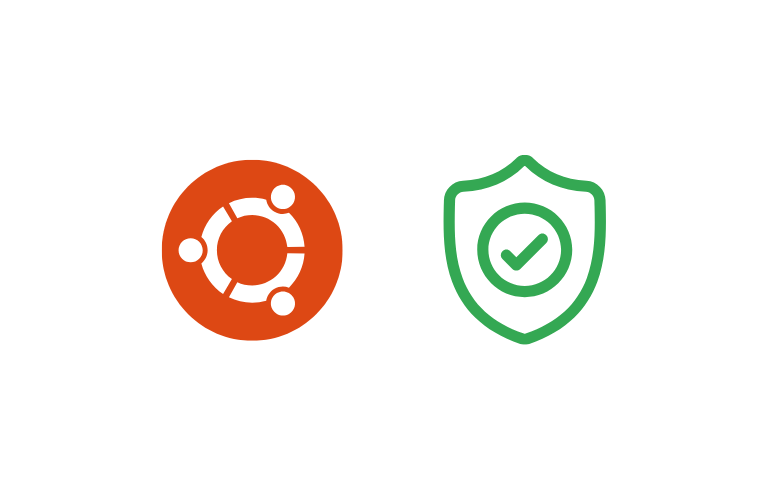In today’s threat landscape, Ubuntu Server Security is non-negotiable. Whether you’re hosting a website, managing a database, or running cloud applications, a misconfigured firewall can leave your system vulnerable. The Uncomplicated Firewall (UFW) is Ubuntu’s built-in tool for managing iptables, offering simplicity without sacrificing power. This guide dives deep into UFW’s advanced features, port management, and practical use cases to fortify your server.
Table of Contents
What Is UFW and Why Does It Matter for Ubuntu Server Security?
UFW simplifies firewall management by abstracting iptables’ complexity. It’s pre-installed on Ubuntu and designed to help admins enforce rules with straightforward commands. Here’s why it’s critical for Ubuntu Server Security:
- Intuitive syntax: Replace lengthy iptables commands with ufw allow or ufw deny
- Application profiles: Pre-configured rules for services like Apache, Nginx, and OpenSSH
- Granular control: Restrict access by IP, port, protocol, or interface
- Logging: Track allowed/blocked traffic for auditing
Without UFW, your server’s doors are wide open to brute-force attacks, DDoS attempts, and unauthorized access. With security regular server maintenance is also important so manage that.
Understanding Ports: The Gatekeepers of Ubuntu Server Security
Ports are communication endpoints that determine how services interact with your server. Common ports include:
- Port 22 (SSH): Remote server access
- Port 80/443 (HTTP/HTTPS): Web traffic
- Port 3306 (MySQL): Database connections
Key concepts:
- TCP vs. UDP: TCP guarantees delivery (used for web, email), while UDP is faster but unreliable (used for streaming, DNS)
- Port ranges: Useful for applications like FTP (ports 20-21) or gaming servers
Misconfigured ports are a top attack vector. UFW lets you lock them down efficiently.
Step-by-Step UFW Setup for Ubuntu Server Security
1. Install and Enable UFW
Most Ubuntu systems include UFW. Confirm installation and activate it:
sudo apt update && sudo apt upgrade -y # Update system first
sudo ufw enable # Start and enable UFW on boot2. Set Default Policies
Block all inbound traffic and allow outbound:
sudo ufw default deny incoming
sudo ufw default allow outgoing3. Allow Essential Services
SSH (Port 22): Avoid locking yourself out:
sudo ufw allow 22/tcpWeb Traffic: For Nginx/Apache:
sudo ufw allow 'Nginx Full' # Allows ports 80 (HTTP) and 443 (HTTPS)4. Verify Rules
Check active rules with:
sudo ufw status verboseAdvanced UFW Rules for Real-World Ubuntu Server Security
Use Case 1: Whitelist Trusted IPs for SSH
Limit SSH access to your office IP (e.g., 192.168.1.100):
sudo ufw allow from 192.168.1.100 to any port 22Use Case 2: Block a Malicious IP
Ban an IP attacking your server:
sudo ufw deny from 203.0.113.25Use Case 3: Rate Limiting to Thwart Brute-Force Attacks
Allow SSH but block after 6 connection attempts per minute:
sudo ufw limit 22/tcpUse Case 4: Secure a Database Server
Allow MySQL (port 3306) only from your web server’s IP (e.g., 10.0.0.5):
sudo ufw allow from 10.0.0.5 to any port 3306Use Case 5: Open Port Ranges for Gaming Servers
Allow UDP ports 27015-27030 for Steam games:
sudo ufw allow 27015:27030/udpManaging Ports Like a Pro: Tips for Ubuntu Server Security
1. Use Application Profiles
UFW includes pre-defined rules for popular apps. List them with:
sudo ufw app listEnable a profile (e.g., Nginx):
sudo ufw allow 'Nginx HTTPS'2. Create Custom Application Profiles
For custom apps, create a profile in /etc/ufw/applications.d/.
Example: A profile for a Node.js app on port 3000:
[NODEJS]
title=Node.js Application
description=Custom Node.js server
ports=3000/tcpActivate it with:
sudo ufw allow 'NODEJS'3. Block Unnecessary Ports
Close risky ports like Telnet (port 23):
sudo ufw deny 23/tcpMonitoring and Logging: The Eyes of Ubuntu Server Security
1. Enable UFW Logging
Monitor allowed/blocked traffic:
sudo ufw logging onLogs are stored in /var/log/ufw.log.
2. Analyze Suspicious Activity
Check for brute-force attempts on SSH:
grep 'UFW BLOCK' /var/log/ufw.log | grep 'DPT=22'3. Integrate with Fail2Ban
Automatically block IPs with multiple failed login attempts:
sudo apt install fail2banConfigure Fail2ban to read UFW logs and ban attackers.
Ubuntu Server Security Best Practices
- Test Rules Before Applying: Use –dry-run to avoid lockouts
- Regular Audits: Review rules monthly with sudo ufw status numbered
- Combine with Other Tools: Use UFW alongside ClamAV (antivirus) and Tripwire (file integrity monitoring)
- Backup Rules: Export configurations for disaster recovery:
sudo ufw status verbose > ufw-backup.txtTroubleshooting Common UFW Issues
Problem: Locked Out of SSH
Fix: Access the server via console (AWS, DigitalOcean, or physical access) and adjust rules:
sudo ufw allow 22/tcpProblem: Service Not Accessible After Rule Addition
Fix: Check if the correct protocol (TCP/UDP) is allowed. For example, DNS uses UDP:
sudo ufw allow 53/udpProblem: Conflicting Rules
Fix: Delete conflicting rules by number:
sudo ufw status numbered
sudo ufw delete [rule-number]Elevate Your Ubuntu Server Security
UFW is a cornerstone of Ubuntu Server Security, but it’s just one layer. Pair it with encrypted backups, intrusion detection systems (IDS), and regular patches for a holistic defense.
Ready to Take Action?
- Audit your current firewall rules
- Implement rate limiting for SSH
- Share this guide with your team to spread Ubuntu Server Security best practices!




